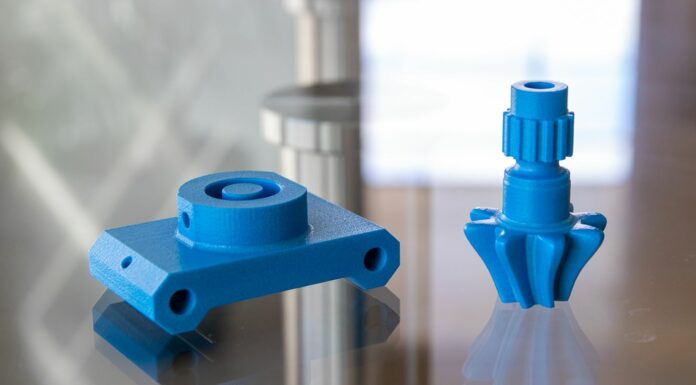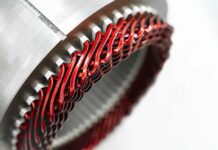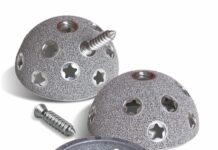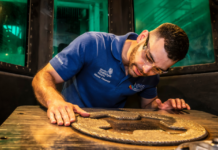The latest application from The Danish Technological Institute was the use of metal 3D printed spare parts to give new life to worn-out milk pumps. The research institute is making headlines today with a blue nylon powder for 3D printing production it has developed for the food industry.
This material would make it easy to detect unwanted components in food production. Approved for food contact in both Europe and the USA, it also meets the food industry’ safety requirements.
“[…] We have seen a need for [it] in the food industry; [it is] something that does not yet exist within 3D printing”, says Morten Lisberg Jørgensen, consultant and 3D printing specialist at the Danish Technological Institute.
More properties in the same powder increase food safety
The Danish Technological Institute has previously developed metal detectable nylon powder, and there is also blue powder on the market which is visually detectable – but the combination of these properties is completely new within 3D printing using upcycled powder. The powder that has been developed by the Danish Technological Institute consists of white nylon powder, some metal powder, and some blue nylon powder which gives the blue colour that is in demanded in the food industry, a press release explains.
“Adding the blue colour to the metal detectable nylon gives the added value that customers can easily see it visually. You often have lines in a production where there is no metal detector, and then it makes sense that the 3D printed parts are blue, so that it is easier to see in the food if small pieces should break off”, Morten Lisberg Jørgensen from Danish Technological Institute, comments.
The metal content in the powder also makes it possible for a metal detector or X-ray scanner to capture even small granules down to 1×1 mm size.
As far as hygienic advantages are concerned, since AM makes it possible to produce components almost without joints, this means there are fewer places where bacteria can accumulate. At the same time, this makes cleaning easier, as there are less parts to take apart.
3D printed components from the Danish Technological Institute also receive a so-called 3S treatment (Super Smooth Surface), which seals the surface and makes it water resistant – this makes cleaning even easier.
With this material, the research team at DTI hopes to make AM more attractive for the food industry.
Remember, you can post job opportunities in the AM Industry on 3D ADEPT Media for free or look for a job via our job board. Make sure to follow us on our social networks and subscribe to our weekly newsletter: Facebook, Twitter, LinkedIn & Instagram ! If you want to be featured in the next issue of our digital magazine or if you hear a story that needs to be heard, make sure you send it to contact@3dadept.com






